25 Reasons You’re Gaining Weight (Other Than Your Diet)
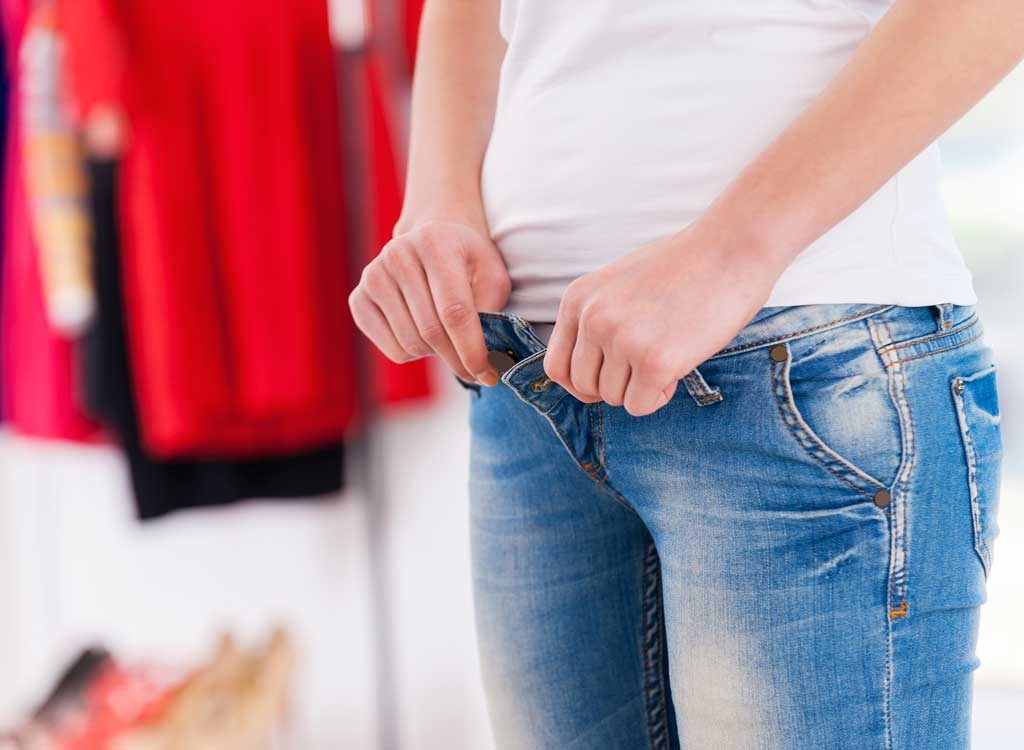
It happens every year: the whole "New Year, New Me!" thing. It's no use denying it—there's even proof! U.S.-based consumer research company Nielsen has found that "staying fit and healthy" and "losing weight" are the top two most popular resolutions in America time and time again. But contrary to common belief, your diet isn't the only reason you started packing on a couple extra pounds in the first place.
One of the biggest roadblocks to getting lean is a restrictive diet that becomes too bothersome to keep up. So, to help you achieve your slim-down ambitions, we here at Eat This, Not That! thought it would be helpful for you to tackle the non-food related reasons you packed on the pounds. Kick these habits to the curb and then double down on your bet for resolution success with these 55 Best-Ever Ways to Boost Your Metabolism.
You Stay Up Late

Eating right isn't enough if you're staying up until the wee hours of the morning. Study after study shows that shorter amounts of sleep are associated with higher BMI levels and larger waistlines. The primary reason? "Lack of sleep can lead to increased levels of the hunger hormone ghrelin and decreased levels of leptin, the satiety hormone," explains Alissa Rumsey, Registered Dietitian and Spokesperson for the Academy of Nutrition and Dietetics. "Research also shows that when we're sleep-deprived, our brains respond more strongly to junk food and have less of an ability to practice portion control."
You Work Out… Too Much

Exercise is important to any diet routine, but oddly enough, working out too much and thinking about your upcoming sweat sessions too often can make it more difficult to lose weight. Research has found that you're apt to consume more calories when your upcoming lift is always on your brain—likely because you assume you'll just blast it away once you break a sweat. Additionally, if you're working out every day without a recovery period, you can build up inflammatory soreness and even cause injury, which may ultimately lead to a decrease in physical activity. Working out in the morning can help take your mind off of exercise during the day, and always ensure you take a rest day.
You Never Check The Scale
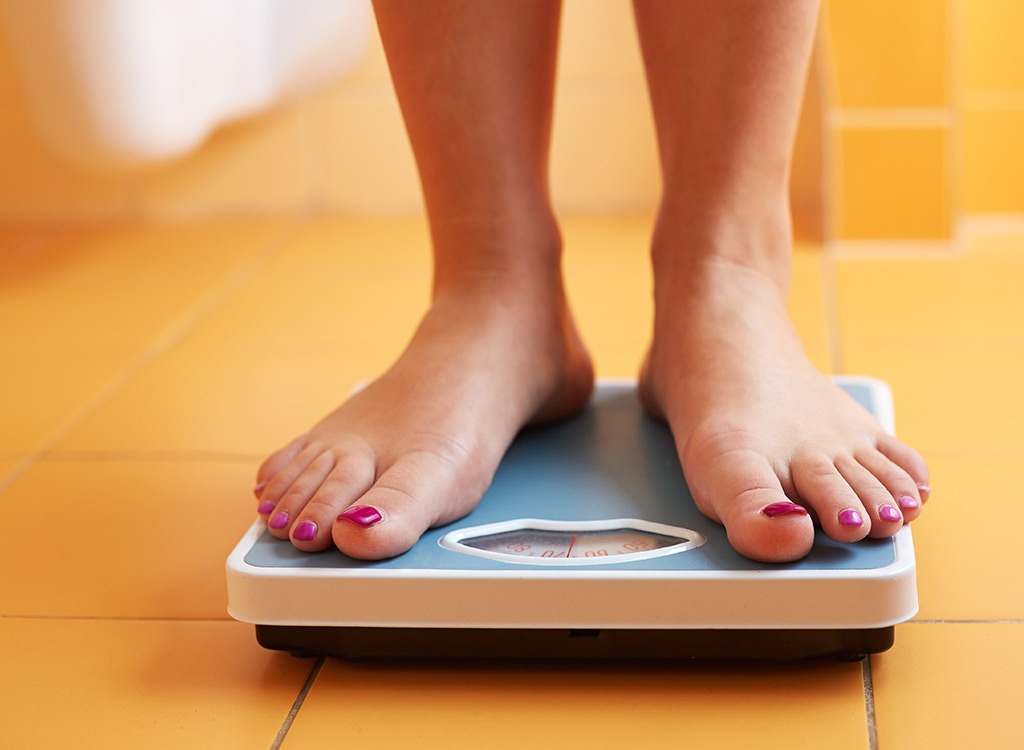
Avoiding the scale like your ex? Ignorance could be the very reason behind your ever-tightening waistband. Looking at your body weight helps to reinforce weight-loss goals and makes it difficult to cheat your diet. When University of Minnesota researchers observed dieters who weighed themselves daily, they discovered that the routine of stepping on a scale helped those people lose twice as much weight as those who weighed themselves less frequently.
You're Stressed

If you're the kind of person who is always running behind schedule, that means you're constantly feeling stressed. Feeling stressed likely equates to higher levels of the stress hormone cortisol, which has been shown to slow your metabolism and induce fat storage, according to research published in the journal Biological Psychiatry. To add insult to injury, the types of food we crave when we're stressed out tend to be fatty and sugar-laden.
You Watch T.V. Shows Via Cable

Cord cutters aren't just saving money; they're saving calories. Researchers found that exposure to food advertisements can act as a "food cue," which increases cravings and contributes to eating (even if your body isn't physically hungry) and weight gain. Still using cable? DVR your favorite shows so you can fast forward through commercials to avoid temptation. Or reduce your TV time by 50 percent and you can burn an additional 119 calories a day on average, according to a University of Vermont study.
Your Meals Are Always Rushed

While you might feel like you can fast forward through your day, your stomach can't. That's because it takes 20 minutes for your stomach to tell your brain that it's had enough. Translation: you're more likely to overeat and put on weight if you're shoveling food into your mouth as quickly as possible. By slowing down your food intake, a study in the Journal of the American Dietetic Association suggests you could take in 66 fewer calories per meal and feel like you've eaten more than if your meal was rushed.
You're Taking Medication

Some birth control pills, steroids, and even antidepressants can change how our body naturally removes fluids, says dietician Abbey Sharp, R.D. Even if you changed or started meds weeks ago, the side effects could either be kicking in or could fluctuate, depending on your own body's hormonal cycle. Alissa Rumsey, Registered Dietitian and Spokesperson for the Academy of Nutrition and Dietetics, elaborates: "As many as 25 percent of people taking certain antidepressants report gaining 10 pounds or more. Plus, some medications may cause food cravings, especially for carbohydrates, and some find that their medication increases their appetite." If you suspect your drug is causing weight gain, don't take yourself off it. Make an appointment with your healthcare provider to discuss alternatives.
You Treat Food As A Coping Mechanism
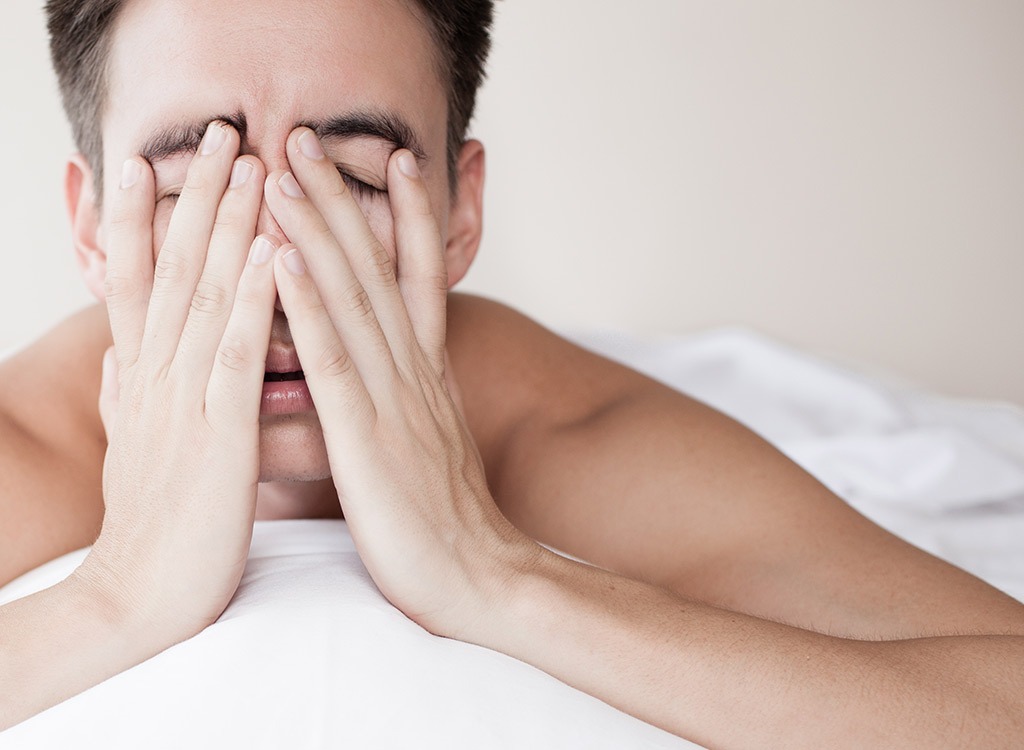
Didn't get that promotion you wanted? Ice cream is not the answer. A study from the University of Alabama found that emotional eaters—those who admitted to eating in response to emotional stress—were a staggering 13 times more likely to be overweight or obese than those who didn't cope with the munchies. Creating an automatic response to stress that doesn't involve food—like going for a walk or taking a shower—will help to prevent yourself from overloading on calories.
You're Aging

With great aging comes great fitness responsibility. When you pass your 30th birthday, you'll start to lose muscle mass and your metabolism will slow—which means you'll gain weight if you don't change your diet or exercise routine. To keep your lean figure, be sure to integrate cardio and weight bearing exercises to preserve lean body mass and muscle tissue.
You Wash Your Hands with Antibacterial Soap

It sounds crazy, but it's true: Hand sanitizer could be making you fat. One of the antibacterial agents added to soap, triclosan, is a type of "obesogen"—a compound that can potentially cause weight gain by disrupting the body's hormones. A study in the journal PLOS One found a detectable level of the compound was associated with a 0.9-point increase in body mass index (BMI). Experts believe the negative impact on weight is due to triclosan interfering with your metabolism-controlling thyroid hormones. Luckily, in September 2016 the FDA finally declared that antimicrobials be removed from soaps as they do little to make soap work more effectively and could do more harm than good. Until they've been removed from all products (which will take a year), be sure to stick to soap that doesn't market its "antimicrobial" properties.
You Sleep Too Much

When you barely get six hours of sleep, it can seem unfathomable that there are people who get too much sleep. But you better believe those people exist. And it could be just as bad as your lack of sleep predicament. Sleep studies have found that oversleeping—which is more than 10 hours a day—is linked to decreased cognitive function and increased risk of obesity, diabetes, depression, and chronic inflammation (because your body increases production of inflammatory factors known as CRP while you sleep). Each of those symptoms has separately been connected to weight gain.
You Only Have One Workout

It's not just boring. It could be causing pounds to mount on your frame. If you haven't switched up your workout routine recently, your body isn't being challenged anymore. Translation: you aren't burning as many calories as you did when you first started.
You Sit All Day

Get this: Americans sit an average of 91 hours a week and sleep for 56, but only spend a mere 21 hours moving. How sad is that? Ultra-sedentary jobs have resulted in Americans burning 100 fewer calories a day than we did 50 years ago and have worsened our insulin response, which can cause diabetes and obesity. Surprisingly, exercise isn't the solution. In fact, a 2016 study in the journal Circulation warned that exercising for the recommended 150 minutes a week won't undo the negative impact that sitting for eight or more hours a day has on your cardiovascular health. The Clinical Journal of the American Society of Nephrology suggests taking a two-minute walk every hour to offset the effects of too much sitting.
You're Addicted To Your Phone

It's usually the first thing you do in the morning and the last thing you do before putting head to pillow. Can you guess what it is? For many of us, it's check Facebook, emails, text messages, etc. on our phones, tablets, or computers. It might help you stay informed, but it's keeping you from having a productive morning, and more importantly, falling asleep quickly. Nighttime exposure to blue light from electronics interferes with the body's natural production of the sleep-promoting hormone melatonin, and thus is linked to interrupted sleep and can negatively impact your stress hormone levels and metabolism.
You're Always Dressed Up

Dress down days aren't just more comfortable—they help you to be more active and could keep you from putting on weight. University of Wisconsin researchers found that people who wore denim to work took almost 500 more steps (which equates to a quarter mile) throughout the day than they did on days when they wore more formal attire. Over time, those extra steps can help you maintain a leaner physique.
Your Friends Aren't Fit
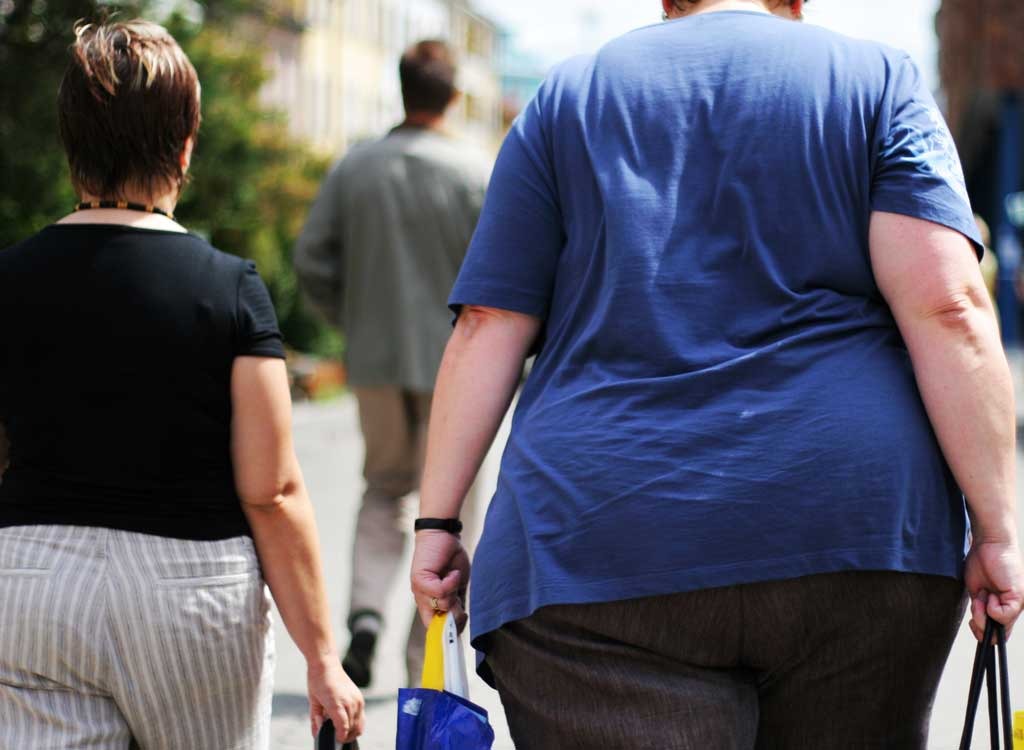
Your mom was right. Surrounding yourself with smart people can make you smarter. The same goes for fitness. According to research from the New England Journal of Medicine, when a friend becomes obese, it ups your chance of obesity by 57 percent. Other studies have shown that when we eat with larger people, we may consume more food than what we usually would if dining with non-overweight people. Finding a partner who shares your drive to get and stay healthy can make it more likely you'll reach your weight loss goals.
You Never Opt For Stairs
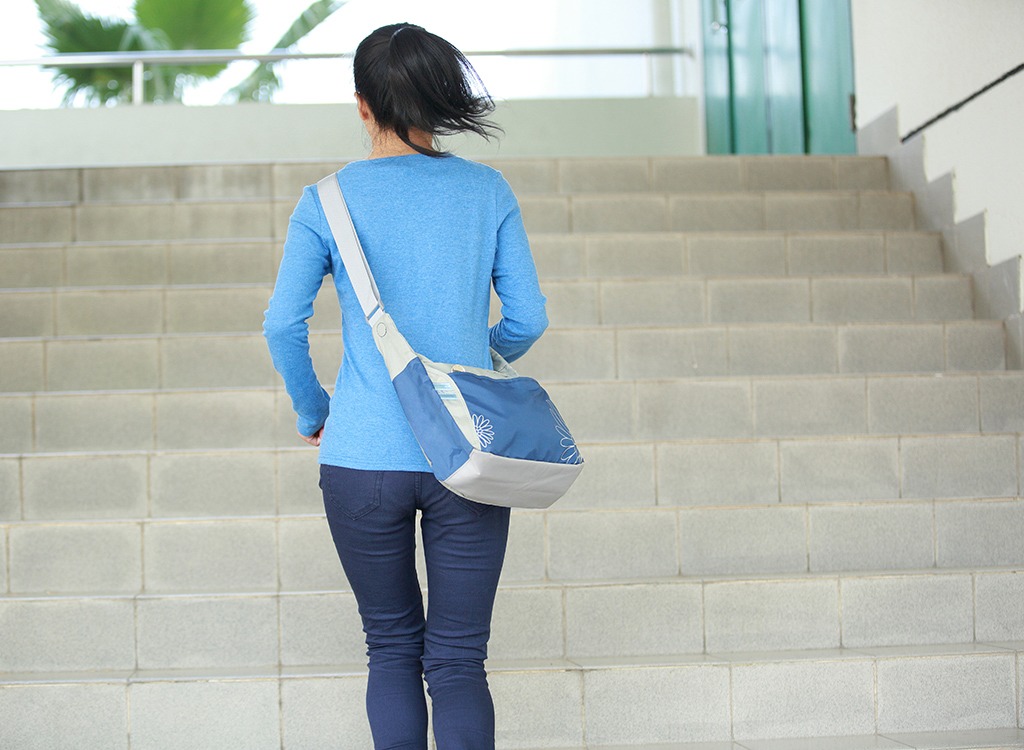
Elevators are convenient, but taking them means you're missing out on some serious calorie-burning movement. According to the University of New Mexico Health Sciences Center, a 150-pound person could lose about six pounds per year just by climbing up two flights of stairs every day.
You Order Last When Dining Out

Are you the one who always says, "I'll go last" to your waiter? That might be contributing to weight gain. You see, a University of Illinois study found that people in a group tend to order similarly, especially when forced to give their order out loud. If you order last and your company decides to load up on nachos and the fried chicken and waffles, you're more likely to order similarly…and suffer the calorie consequences. Before heading to the restaurant, check out the menu online, decide on a dish, and ask the waiter if you can order first.
Your Food is Never Out of Sight

It's not just cookies were talking about. When treats, candy, and snacks are in sight, in mind, and in reach, you're more likely to grab them—regardless of whether they're healthy or whether you're even physically hungry. Take a page from a Journal of Marketing study's book and hide your vices. The study found that people are more likely to overeat treats from transparent packages than from opaque ones.
You Skip Meals

Stop trying to work through a rumbling stomach. Skipping meals may increase your odds of obesity. A study from the American Journal of Epidemiology found that those who cut out breakfast were 4.5 times more likely to be obese. Why? Skipping meals causes your blood sugar to plummet and your ghrelin levels to increase (the hormone that screams "I'm hungry!"), which can lead to overeating at your next meal. Don't say you don't have time for breakfast; it's easy if you make these overnight oats!
You Eat In Front of the T.V.

Can't hear yourself chew? Stop doing whatever you're doing. And yes, that means press pause on Deadliest Catch. Studies have shown that when you can't hear yourself chew or your brain is preoccupied with watching a show, it could prevent your body from registering the satiety cues that alert you that you've eaten your fill. In fact, people who eat while watching television may consume 10 percent more in one sitting than they would otherwise, and even go on to consume an average 25 percent more total calories over the course of the day, according to an American Journal of Clinical Nutrition study.
You Leave Food On The Table

It's a fairly common practice: you place dishes on the dinner table and allow family members to take as much as they please whenever they want. Unfortunately for your waistline, a study in the journal Obesity found that when food is served from the dinner table, people consume 35 percent more over the course of the meal. Want to stop overeating? Keeping extra food off the table will make people hesitate to get the additional helping when it requires leaving the table.
You Have An Underactive Thyroid

A whopping 14 million Americans can lead healthy lifestyles but still gain weight. What's to blame? Hypothyroidism: a condition where your metabolism-regulating thyroid gland becomes under-active and can cause a stalled metabolism and weight gain. According to The National Institute of Diabetes and Digestive and Kidney Diseases, the condition often develops slowly and many people don't notice the symptoms of the disease until they're full blown. So, if you've suddenly put on weight for no apparent reason, we suggest seeing a medical professional. Fortunately, the disease is quite manageable as your doctor can prescribe a calibrated dose of thyroid replacement medicine.
You're Bored
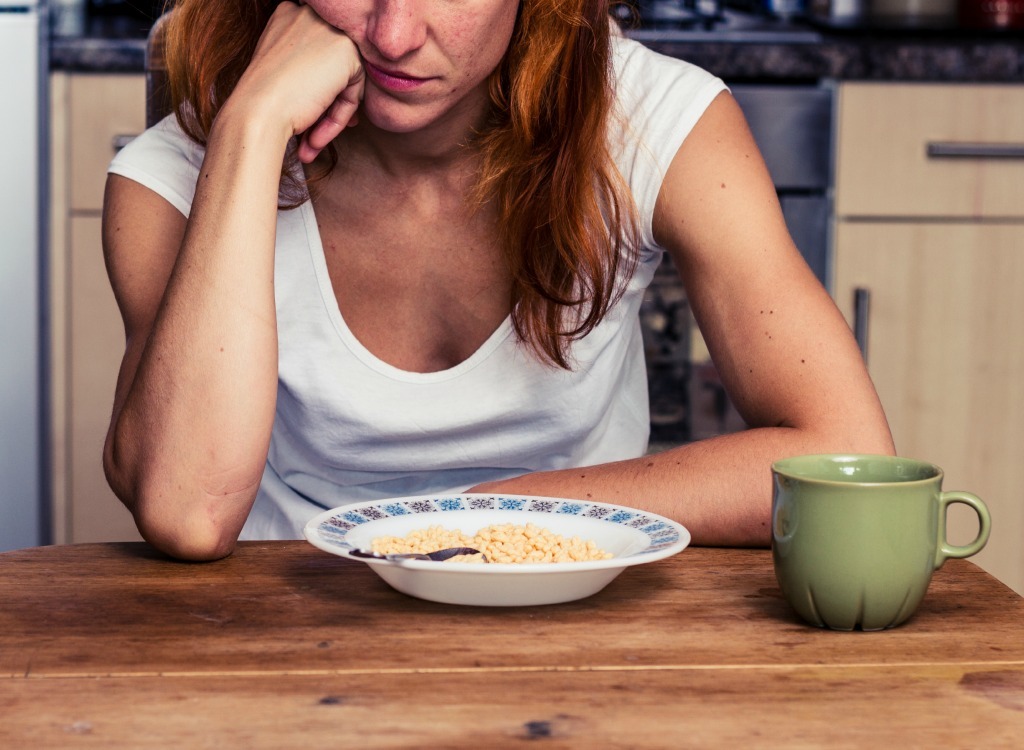
How many times have you reached for a bag of chips when you realized you weren't doing anything? According to a study in the Journal of Health Psychology, when you're bored, you can lose your ability to make smart food choices, meaning you're more likely to eat fattening foods—and more of them—than you normally would. The best way to beat boredom is to find something to do that is purposeful and challenging for 20 minutes (about the time it takes to overcome cravings) like read a book, take a walk, or do your nails.
You're Thirsty

Because water is essential to hundreds of metabolic processes, staying hydrated ensures your body is functioning at an optimal level. It boosts your energy and keeps your stomach feeling full, which can stave off overeating. Being dehydrated is one of the 30 Reasons You're Always Hungry.